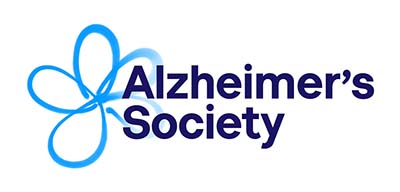What is Dementia?
Dementia is a syndrome which is commonly associated with the continuing decline of brain functioning. There are many different causes of dementia and it can often be confused with Alzheimer’s disease.
Someone with dementia may begin to have problems managing their emotions, or will start to become uninterested in hobbies or their usual everyday activities. They may also find social situations challenging, and therefore, they may start to decline outings with friends or turn down the opportunity to meet new people.
Dementia can progress to the point where the person will lose the ability to remember people or events that have happened in their life. They may even start to hear or see things which aren’t actually there.
As a result of this debilitating syndrome, a person with dementia will need continuous help and support from family and friends. Often, this may involve relatives making decisions on behalf of their loved one, as the dementia progresses.
What are the Symptoms of Dementia?
There are many signs and symptoms of dementia, including:
- Memory loss
- Difficulty concentrating
- Losing the ability to carry out daily tasks
- Struggling to follow or become involved in conversation
- Mood swings
- Confusion about what time it is or where they are
- Decision making becomes difficult
- They’re unable to make judgements
- Planning and organisation can become difficult
Often, these symptoms will start off relatively mild and progress or worsen over time. This is often termed “mild cognitive impairment” (MCI), as the symptoms aren’t yet severe enough to be diagnosed as dementia. You may not notice these symptoms at first, although family and friends (or other people who know you well) will.
Dementia is not an inevitable or normal part of ageing. Therefore, if you or someone you know begins to display these behaviours or symptoms, it’s better to visit your GP as soon as possible.
What are the Different Types of Dementia?
Despite common belief, dementia comes in many forms, and some are more severe than others. The different types of dementia include:
Vascular Dementia
This is the second most common type of dementia, affecting approximately 150,000 people in the UK alone. The symptoms of vascular dementia occur when the brain becomes damaged due to its lack of blood supply. There are different types of vascular dementia, these are:
- Stroke-related dementia
- Post-stroke dementia
- Single-infarct and multi-infarct dementia
- Subcortical dementia
- Mixed dementia (vascular dementia and Alzheimer’s disease)
Dementia with Lewy Bodies (DLB)
This type of dementia accounts for 10-15% of all dementia cases in the UK. DLB can often be misdiagnosed, being mistaken for Alzheimer’s disease instead. Lewy body dementia is another term used to describe DLB. Lewy bodies can also cause Parkinson’s disease, affecting the brain and nervous system which will gradually worsen.
Frontotemporal dementia (FTD)
FTD covers a wide range of conditions. It can sometimes be called Pick’s disease or frontal lobe dementia. ‘Frontotemporal’ refers to damaged lobes of the brain as a result of dementia. Frontal lobes are found behind the forehead and control our behaviour, problem-solving abilities, planning, organisation and control of emotions. The area to the left of the frontal lobe controls our speech. FTD occurs when nerve cells in the frontal and/or temporal lobes of the brain begin to die, causing the pathways that connect the two lobes to change. FTD is a less common form of dementia, meaning the majority of people may not have heard of it.
Young-onset dementia
If someone has dementia who is under the age of 65, then they will be diagnosed with young-onset dementia. Dementia is not determined by a person’s age, although younger people will have different needs and will need to be supported in a different way to someone who is over the age of 65 and living with dementia.
To learn more about the different types of dementia, visit the Alzheimer’s Society website.
Dementia care at Bondcare
The decision to move into a residential care home, whether this be for yourself or for a loved one, can seem daunting and overwhelming. A person with dementia will need more care and support as their condition progresses, leaving yourself and loved ones unable to provide the proper care needed to keep them happy and comfortable. As there are different types of dementia, each individual patient will need a personalised care plan, so they are comfortable in their environment for the duration of their stay.
Caring for a person with dementia requires a lot of time and patience, which is why specialist dementia care homes may be the best choice for yourself or a loved one. Here at Bondcare, we have a selection of dementia care homes, so you can choose the best one for your individual needs, located throughout the United Kingdom. Take a look through our specialist care homes and get in touch with a member of our friendly team if you have any queries.





